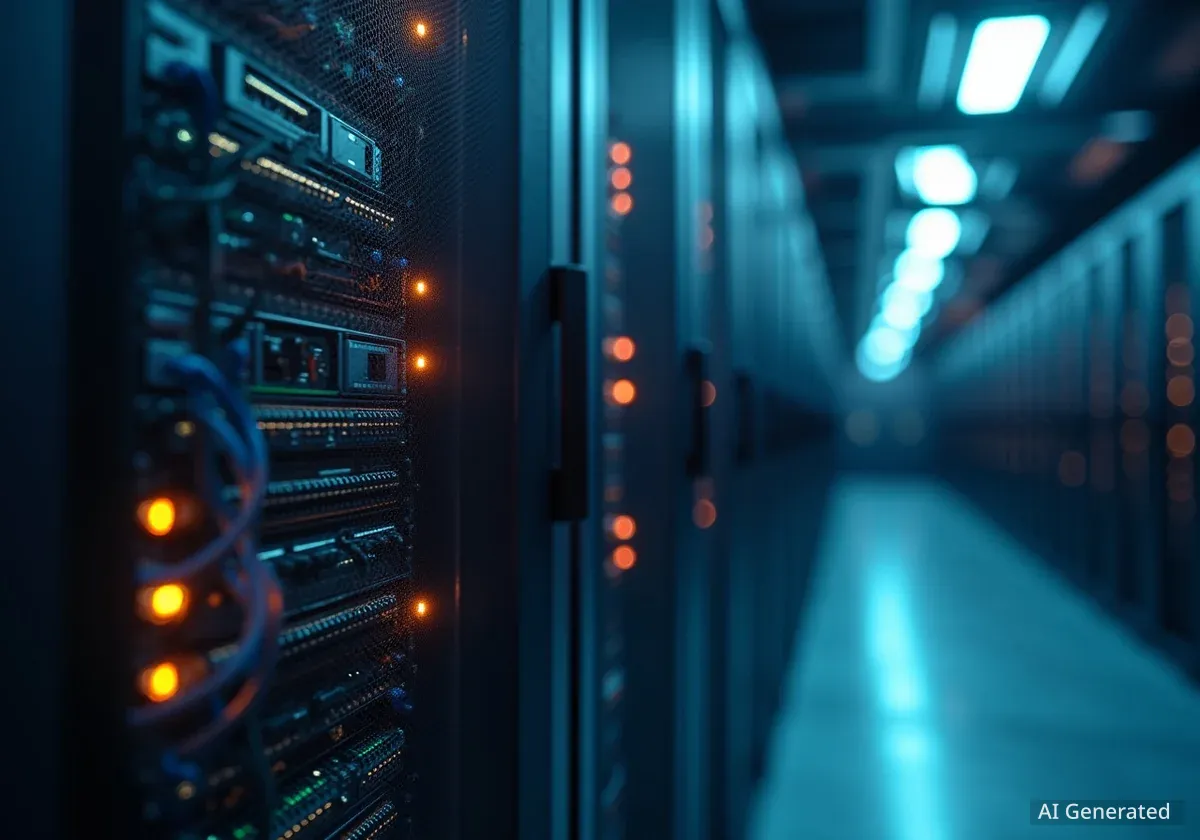A class-action lawsuit has been filed against the artificial intelligence company Anthropic. Three authors, including novelist Andrea Bartz, are leading the legal action. They allege that Anthropic used their copyrighted books, along with hundreds of thousands of other works, to train its AI models without permission or compensation. This case highlights growing concerns about intellectual property rights in the age of generative AI.
The lawsuit, titled Bartz v. Anthropic, began in August 2024. It seeks to address what the authors describe as the unauthorized ingestion of their creative works. This legal challenge pits individual creators against a significant AI firm, currently valued at an estimated $183 billion.
Key Takeaways
- Authors Andrea Bartz and others filed a class-action lawsuit against AI company Anthropic.
- The lawsuit alleges Anthropic used copyrighted books to train its AI without permission.
- This legal action raises questions about intellectual property rights and generative AI.
- The case highlights the financial and ethical challenges faced by creators in the AI era.
The Genesis of the Lawsuit
The issue came to light for many authors in August 2023. News reports revealed that pirated books were being used to power generative AI systems. Andrea Bartz, a thriller novelist, discovered her own works in databases linked to large language model training. This discovery prompted her to join the legal fight.
The realization that her books, representing years of work, had been consumed by algorithms in moments caused significant concern. Many authors share this sentiment. They see their creative output, often the result of extensive effort, being repurposed without their consent or any form of payment.
Fact: Generative AI Models
Generative AI models, such as large language models (LLMs), are trained on vast datasets of text and other media. This training allows them to generate new content, including articles, stories, and code. The source of these training datasets is a central point of contention in many intellectual property disputes.
Legal Challenges Against AI Companies
The lawsuit against Anthropic is not an isolated incident. Several other AI companies face similar legal challenges. Authors, artists, and other content creators are increasingly seeking to protect their intellectual property. They argue that their copyrighted materials are being used to build commercial AI products.
These legal battles aim to establish new precedents for how AI companies can use existing content. They also seek to ensure fair compensation for creators. The outcomes of these cases could significantly shape the future of both the creative industries and the AI sector.
"The companies behind these buzzy new chatbots had reduced decades of intense work to text files gobbled up by algorithms in a fraction of a second."
Understanding Anthropic's Role
Anthropic is a prominent AI development company. It is known for its advanced large language models, including the Claude series. These models are designed to perform various tasks, from answering questions to generating creative text formats. The core of their capability relies on extensive data training.
The company has attracted significant investment, reflecting the high value placed on generative AI technology. Its current valuation underscores the financial stakes involved in these intellectual property disputes. Legal experts are closely watching how Anthropic and similar firms will navigate these claims.
Context: Intellectual Property in the Digital Age
The digital age has consistently challenged traditional intellectual property laws. The rise of the internet led to new debates over digital piracy and content distribution. Generative AI introduces a new layer of complexity, as AI models 'learn' from existing works to create new ones. This process blurs the lines of authorship and fair use.
The Authors' Perspective
Andrea Bartz, one of the lead plaintiffs, described the fight as "daunting." She noted the significant difference in resources between individual authors and a multi-billion-dollar corporation. Despite this, she expressed determination to pursue the case.
Authors often invest years in developing their craft and creating their works. The idea that these works can be used without permission to train AI, which could then compete with them, is a major concern. They argue that this practice undermines their livelihoods and creative control.
- Authors seek fair compensation for their work.
- They aim to establish clear guidelines for AI training data use.
- The lawsuit could influence future AI development practices.
- It highlights the need for updated intellectual property laws.
The Economic Impact on Creators
The widespread use of copyrighted material by AI models could have substantial economic consequences for creators. If AI can generate content similar to human-created works, it might reduce demand for original human authorship. This potential shift creates an urgent need for legal clarity and appropriate compensation frameworks.
According to industry analysts, the generative AI market is projected to grow significantly in the coming years. This growth makes the question of how creators are included in this economic expansion even more critical. Ensuring creators receive proper credit and payment is a central argument in the lawsuit.
Statistics: AI Market Growth
Some reports estimate the global generative AI market size could reach over $100 billion by the end of the decade. This rapid expansion underscores the financial implications of intellectual property disputes in this sector.
Looking Ahead: The Future of AI and Copyright
The Bartz v. Anthropic lawsuit, along with similar cases, represents a pivotal moment. It will likely influence how AI developers acquire and use training data in the future. The courts will need to interpret existing copyright laws in the context of advanced AI technology.
Possible outcomes range from substantial financial settlements to new licensing models for AI training data. The tech industry, legal community, and creative sectors are all closely monitoring these developments. The decisions made in these cases will help define the ethical and legal boundaries for AI innovation.
Ultimately, these lawsuits aim to strike a balance between technological advancement and the protection of creators' rights. Establishing clear rules for AI's use of copyrighted content is essential for both industries to thrive sustainably.





